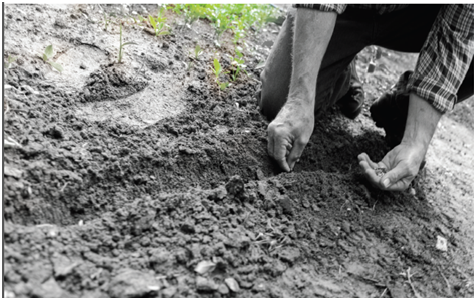
A decade-long debate for a strategy to fight against non-degradable polymer and synthetic organic materials got an impetus, as India becomes host country to celebrate World Environment Day (WED) 2018. The country had a big role in Stockholm environment conference in 1972 where United Nations announced the day of celebration across the world. The then Prime Minister of India Indira Gandhi in her historical speech in the plenary session of conference uttered, “The solution of these problems cannot be isolated phenomena of marginal importance but must be an integral part of the unfolding of the very process of development.” The world today realized the context and unfolded concern of Mrs. Gandhi after 46 years. India is the host country this year and has selected the topic to raise awareness among common mass and get involve to - Beat Plastic Pollution. In 2005, India first time realized the impending threat of poly bags on agriculture and marine life. In the technical discourses, it was suggested to the states to put a ban on the use of plastic carry bags and do not allow the industry to grow up. The then Prime Minister Manmohan Singh, also held the portfolio of environment had reiterated the concern over growing trend of plastic use in daily life.
However, the concern could not reflect in the governance. Delhi, Himachal Pradesh, Sikkim, Tripura, Maharashtra and few other states subsequently banned the use, sell and store of thin plastic carry bags. In 2007, Central Government had issued an advisory to the State Governments to avoid the use of sealed plastic packaged water in public functions and reminded several occasions later too. Unfortunately, the ban on 40 or 50-micron thickness poly bags could not be able to make any visible change in the use and manufacturing of the carry bags. To comply with the order of ban, the producing industries have manufactured 42-micron thickness instead of 40 and 53 microns instead of 50. The spirit of the ban was not depended on the thickness of the polybag rather it was attempted to stop using them. The business lobby did not take the spirit of the ban in cognizance instead took the letters and words used in the order in consideration and have been doing rampant business.
The growing habit of plastic use over the years destroyed our age-old healthy and eco-friendly culture of carrying goods and packaging food items and household goods, marginalised the jute and waste paperbased packaging industries in the country. There was no difference among eco sensitive communities of Himalayan states of India – J&K, Himachal Pradesh, Uttarakhand and eight Northeastern states. Unconsciously, we all fell prey into the poisonous lifestyle leaving behind the healthy and eco-friendly habits. The natural mineral water has been replaced with added mineral water bottles. Banana leaf and Shal leaf meal plates are replaced with one-time plates and glasses. Paper foiled and jute ecopacked food items are now substituted with multi-layered plastic poly-foam and almost 98 percent of daily requirements of Indian middle-class family are now packed in plastic cover and carrier. The campaign of safe and pure drinking water up to grass-root level has opened up the opportunity of the multi-phased business of water like community wealth in packaging. A small state like Tripura, which is blessed with 2200 mm annual steady and wellscattered rainfall over the year, has allowed as many as 79 package drinking water companies to do daily business, generating about 5 MT of plastic waste. The safe drinking water in 20 liters to 200 ml bottles and plastic foil packed is now easily available even in the small remote market of 500 populations. The habit of disposable culture (from toothbrush to shaving set to night cream) is now dominating Indian families. Pavement dwellers to multi-millionaires are habituated in use and through culture, generating the almost equal amount of dangerous non-degradable wastes to our consumption. The competition for generating wastes in Indian families has become a common routine today but nobody is thinking where these wastes go once we threw them. Most of the educated families’ think that they are managing waste well at the home, which is being collected by the collectors engaged by the local self-government in urban localities and send them either to land filing or using them otherwise. Probably, we are not thinking beyond when it is being collected by the rag pickers or waste collectors. The common understanding of cleanliness is to clean the house, locality, village or town not beyond. But today’s problem for India is much bigger than what we think today, which contributes to a health hazard, lifestyle diseases, scarcity of space to manage the waste and exponential growth of level of pollution for the blue planet.
Biswendu Bhattacharjee
To read the further article please get your copy of Eastern Panorama March issue @http://www.magzter.com/IN/Hill-Publications/Eastern-Panorama/News/ or mail to contact @easternpanorama.in


